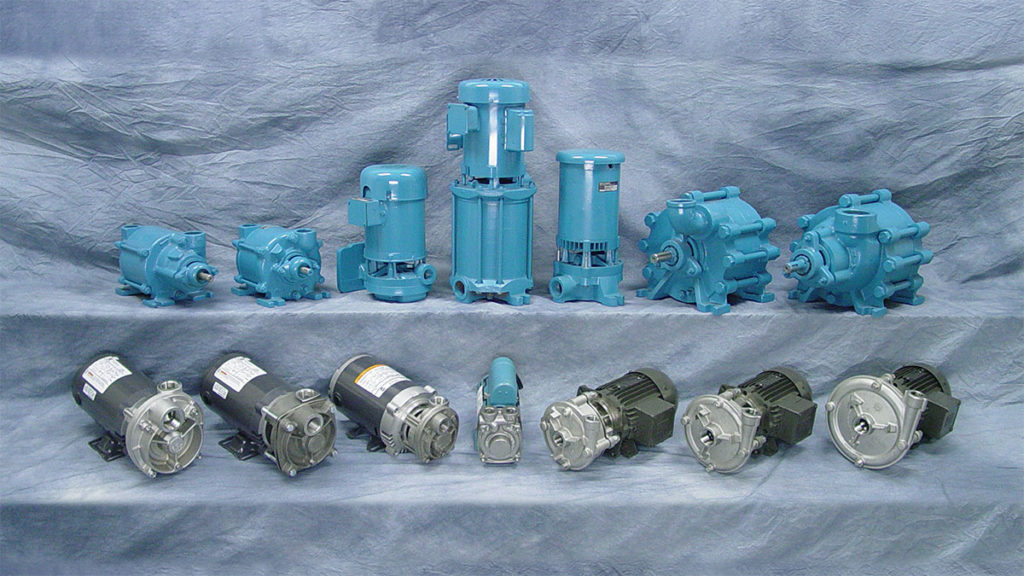This is the final installment of our 8-week series, where we’ve explored the unique characteristics that make regenerative turbine pumps the go-to solution for many applications. This week, we’re looking at the configuration and material options available in regenerative turbine pumps and how these features allow MTH Pumps to meet the diverse needs of industries around the world.
Week 8 – The Configuration and Material Options of Regenerative Turbine Pumps
One of the reasons regenerative turbine pumps stand out is their versatility in both configuration and material selection. Whether you’re handling aggressive chemicals, high-temperature fluids, or delicate materials, the adaptability of MTH Pumps ensures that there is a configuration and material suited for your specific application. MTH’s engineering team works closely with customers to help select the right pump and configuration for their needs, with several material options to match the most challenging requirements.
Material Options for a Range of Applications
MTH Pumps offer a variety of materials to ensure compatibility with the fluids being pumped. The ability to choose the right materials for the pump’s wetted parts (the components in direct contact with the fluid) is essential for maximizing the pump’s lifespan and reliability in demanding environments. Some of the commonly available materials include:
- Cast Iron: Ideal for standard water applications where cost-effectiveness and durability are key. Cast iron pumps provide excellent wear resistance and mechanical strength in less aggressive environments.
- Stainless Steel: Highly resistant to corrosion, stainless steel is often the preferred material for chemical processing, pharmaceutical, and food and beverage applications. It offers superior resistance to chemicals, making it ideal for more corrosive or caustic fluids.
- Bronze: Frequently used in marine applications, bronze provides excellent corrosion resistance to seawater and is also used in applications where fluid compatibility requires it.
- Special Alloys: For highly aggressive chemicals or high-temperature fluids, MTH Pumps can be constructed using special alloys such as 316 SS, which offer advanced resistance to corrosion and erosion.
Flexible Configurations to Fit Every Space and System
Whether you have space constraints, specific installation requirements, or a unique setup, MTH offers a range of pump configurations to meet your needs. These configurations include:

T41 • T51 Mounting Options
- Close-Coupled Pumps:
Close-coupled pumps offer a compact design where the pump is directly mounted to the motor, minimizing the overall footprint. These configurations are perfect for tight spaces or systems where ease of installation and alignment are crucial. They also reduce the overall cost by eliminating the need for a separate coupling and motor alignment process.- Typical Close-Coupled Options:
Most of MTH’s T Series, E Series, P Series, and some M Series pumps are available in close-coupled configurations. These options are widely used in applications ranging from commercial and industrial water systems to chemical and pharmaceutical processing.
- Typical Close-Coupled Options:
- Flex-Coupled Pumps:
Flex-coupled pumps provide a higher degree of flexibility in terms of pump and motor selection. In this configuration, the pump and motor are mounted separately and connected by a flexible coupling. This allows for easy maintenance, especially in larger systems, and is ideal for applications where the pump may need to be decoupled for servicing without disturbing the motor.- Typical Flex-Coupled Options:
Most of MTH’s 100 Series and 200 Series pumps, as well as multi-stage M Series and L Series pumps, are available in flex-coupled configurations. These pumps are often used in high-pressure applications and for handling hot or chemically aggressive fluids.
- Typical Flex-Coupled Options:
- Vertical and Vertical Flange Mounted Pumps:
Vertical pumps are designed to save floor space and can be flange-mounted directly to piping systems or tanks. These pumps are often chosen when space constraints are an issue or when fluid is drawn directly from a storage tank or vessel.- Vertical flange-mounted pumps are often used in HVAC, boiler feed systems, and cooling applications, as well as in chemical processing plants where minimizing the pump’s footprint is critical.
- Vertical flange-mounted pumps are often used in HVAC, boiler feed systems, and cooling applications, as well as in chemical processing plants where minimizing the pump’s footprint is critical.
Close Coupled Materials of Construction

These include most T Series, E Series, P Series, and some M Series Pumps
Flex-Coupled Materials of Construction

These include most 100 and 200 Series Pumps as well as multi-state M and L Series Pumps
Tailored Solutions for Every Industry
At MTH Pumps, our full-time application engineering staff is always ready to help select the right pump for your specific requirements. Whether it’s a standard pump configuration or a highly customized solution, we work closely with our customers to ensure the right match for each application. From chemical processing plants to pharmaceutical research labs, we offer tailored solutions across a wide range of industries.
Thank You for Following Our Series
As we conclude this 8-part series on why regenerative turbine pumps are an ideal choice for so many industries, we hope you’ve gained insight into their unique advantages. From their compact design and low maintenance requirements to their exceptional resistance to cavitation and adaptability in different configurations, regenerative turbine pumps offer unparalleled performance in diverse applications. Thank you for joining us on this journey. If you found this series helpful or would like more information about MTH’s regenerative turbine pumps, please feel free to reach out. Stay connected with us for more updates and insights on pump technology in the future!

